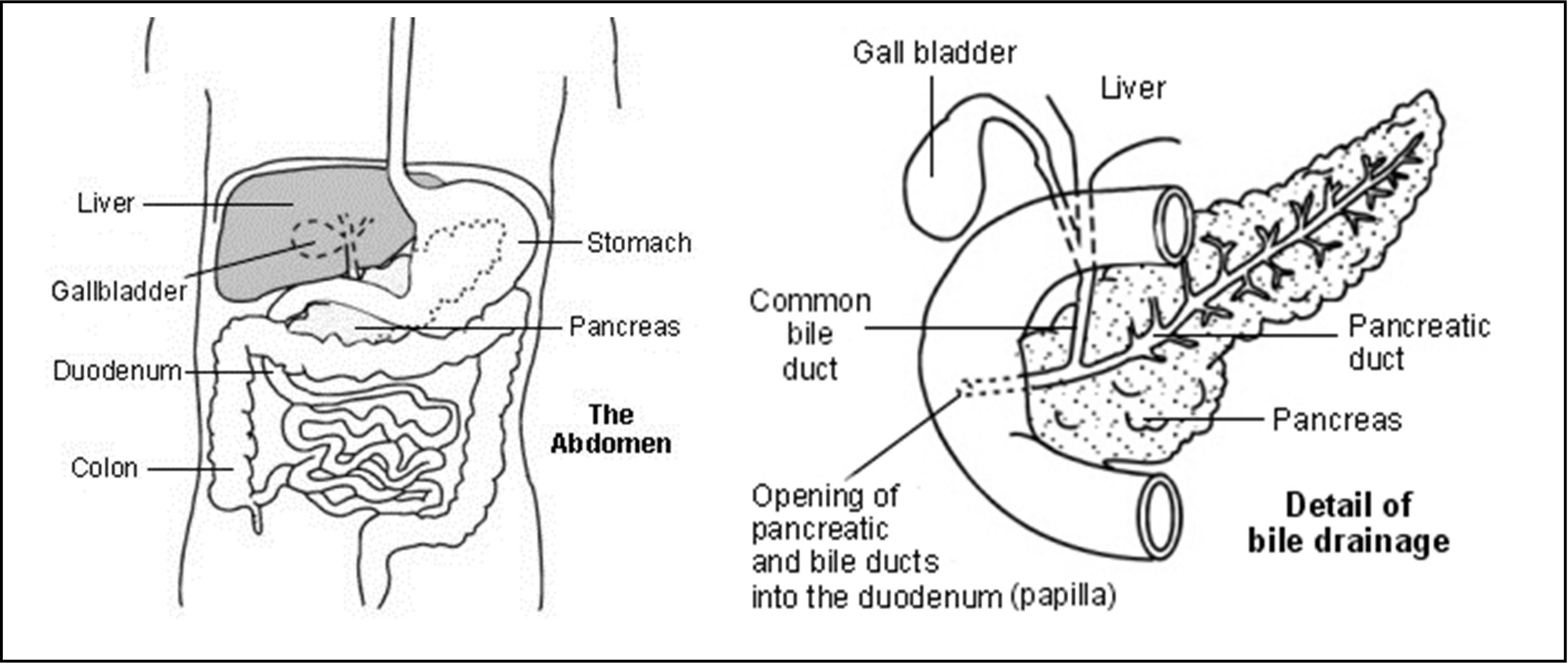What is ERCP?
ERCP is an examination that combines the use of endoscopy device and fluoroscopy equipment to diagnose and treat biliary and pancreatic duct systems.
Endoscope is a flexible thin tube attached with a small light used to diagnose and conduct procedure concerning the digestive tract which includes the stomach, intestine, liver, pancreas and gallbladder.
Fluoroscopy is a study which enables the doctor to visualise the mobility of the internal structures such as the skeletal system, digestive system, urinary system, respiratory system, and the reproductive system using X-rays.
ERCP is mainly used to diagnose and treat the condition of the bile duct and the main pancreatic duct that is narrowed or blocked due to gallstones, inflamed (scars), leaks (from trauma and surgery) and cancer. ERCP can be performed for diagnostic and therapeutic purposes.

Figure 1 : The position of the pancreas
Source: www.patient.co.uk/health/ercp
How and where can I have this examination done?
This examination can only be requested by a specialist at hospitals that does provide this fluoroscopy facility.
Why is the ERCP examination required?
The ERCP examination is required to assist in the tracking of the
- Growth.
- The stones/calculus that forms in the gallbladder and block the channel.
- Inflammation due to trauma or disease such as pancreatitis – inflamation of the pancreas.
- Infection.
- Valve (sphincters) unable to open up correctly.
- Scar or wound (sclerosis) on the pancreas.
- “Pseudocysts” – liquid waste collection in the tissues of the pancreas.
Before the ERCP examination
- Please do inform the radiographer if you are pregnant or suspect that you may be pregnant.
- Patient should fast 4 – 6 hours before the examination.
- Patients with allergy, are adviced to take the prednisolone (Steroids) tablets that are provided.
- Patients are not adviced to wear jewellery or wear valuable items on the day of the examination. Patient is adviced to wear hospital gown that is provided.
During the ERCP examination
- Sedation is given to numb the throat and calm the reflexes. Sometimes intravenous sedation is also administered.
- The endoscope is inserted through the mouth gradually to the oesophagus and digestive tract.
- The doctor will inject contrast medium into your blood vessel to visualise vessels.
- This procedure is performed within an hour.
- The endoscope does not interfere with your breathing. Most patients are asleep during the procedure and may at times feel slight discomfort.
- The patient may feel bloated during the procedure and after the procedure may feel slight discomfort.
After the ERCP examination
- Patient will be monitored before he/she is allowed to return home.
- Patient may experience slight soreness in the throat for a day or two and is adviced to suck on lozenges to relieve pain.
- Patient is adviced to come along with a next of kin on the day of the examination.
- Patient is adviced not drive or handle any equipment for at least eight hours post procedure.
Report of the ERCP examination
All images are scrutined by the radiologist and following this the report is prepared.
Reference
- http://www.niddk.nih.gov/health-information/health-topics/diagnostic-tests/ercp/Pages/diagnostic-test.aspx
- http://www.gastro.org/patient-center/procedures/ercp
| Last Review | : | 4 July 2017 |
| Writer | : | Pushpa Thevi Rajendran |
| Accreditor | : | Daud bin Ismail |







